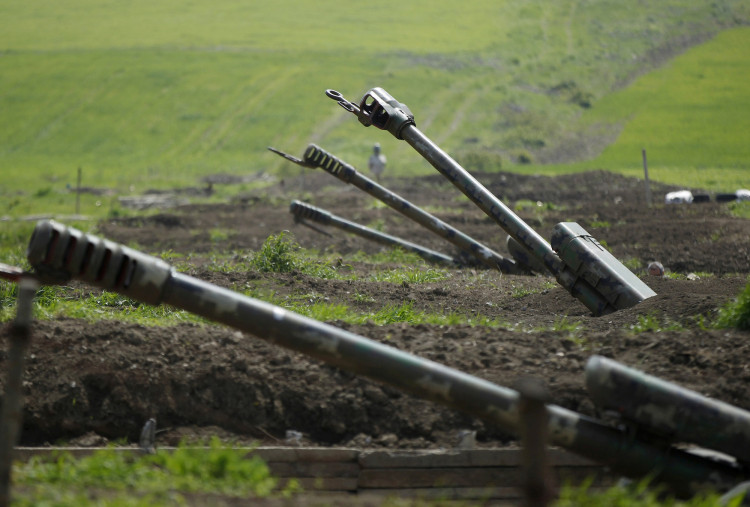Tensions between former Soviet republics Armenia and Azerbaijan have escalated and fire was exchanged in several engagements. Forces from both sides have reportedly clashed in the contested Nagorno-Karabakh region leading to the destruction of helicopters and tanks.
Over the weekend, military officials from both sides confirmed that the clashes had resulted in several deaths and injuries. Armenian Prime Minister Nikol Pashinyan tweeted Sunday that the country's forces had destroyed two helicopters, three tanks and three unmanned aerial vehicles.
In a news conference Sunday the leader of the Republic of Artsakh, a de facto independent Armenian state, Arayik Harutyunyan said its forces have "lost some positions" in the southern parts of the country. As a result, the Armenian government imposed martial law and ordered the "general mobilization" of its forces.
Armenia said its military action was in response to missile attacks from Azerbaijan. Meanwhile, Azerbaijan officials blamed Armenia for instigating hostilities. Azerbaijan's parliament voted to impose martial law Sunday, a decision that was later approved by Azerbaijan President Ilham Aliyev.
Earlier in the weekend Armenian officials claimed Azerbaijan had attacked and targeted civilians in "peaceful areas," including some areas in Stepanakert in the region's capital.
Artsakh official Artak Beglaryan said the attacks resulted in the deaths of civilians, including a mother and her child. He added that dozens of people had been injured and infrastructure destroyed following alleged Azerbaijan attacks on "targeted civilian objects."
The head of Azerbaijan's Foreign Policy Affairs Department Hikmet Hajiyev said on social media Sunday that Armenia was to blame for its "act of aggression and use of force." He added that extensive damage had been inflicted on civilian homes and infrastructure. He said at least five people had been killed by artillery shelling.
Military clashes between the former neighbors aren't uncommon. The two countries have fought over their borders since 1994. Since then, military forces have been involved in minor clashes even after a Russia-brokered cease-fire.






